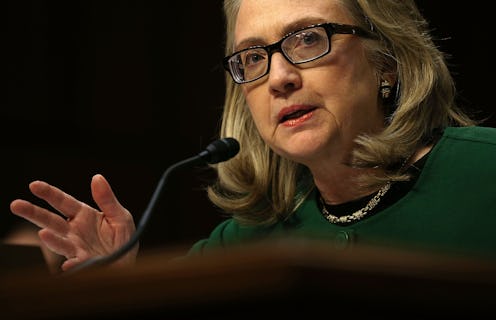News
Benghazi Without Bias May Be Impossible
There are two indisputable things we can say about the 2012 attacks on the American diplomatic compound in Benghazi. The first is that it was horrific and tragic, a sad heightening of the tensions between Islamic militants and the United States. The second is that the vast majority of the responses to the attack has been politically partisan, and that that partisanship reached a fever pitch Tuesday with the release of the House of Representatives’ Benghazi report. This, of course, is in addition to the Democrats’ own Benghazi report, released Monday, and the 48-page addendum to the House report penned by two GOP Congressmen (but not signed by any others).
The facts of the Benghazi attack are clear, even if the details are complex. On September 11, 2012, Islamic militants attacked two sites in Benghazi, Libya, leading to the deaths of four Americans, including U.S. Ambassador to Libya J. Christopher Stevens. It was the first time in over 30 years that a U.S. ambassador had been slain while on duty. Hillary Clinton, who was secretary of State at the time, has since called Benghazi her “biggest regret.”
It has also turned into one of Clinton's biggest political liabilities. Just hours after the report, Donald Trump’s lawyer, Michael Cohen, tweeted an image which claimed that Clinton “murdered an Ambassador.”
Ultimately, and depressingly, I believe Benghazi is coming to represent how divisive and petty our political system has become. The events surrounding the official reports on the incident underscore this problem. Democrats released their own Benghazi report on Monday, which attacked Republicans for wasting time and taxpayer money. While the Democrats’ report may seem to be petty in and of itself, it becomes less shocking when we learn that the Republicans, who headed the official Benghazi committee, didn’t allow Democrats on the committee to co-author the report or review it.
Really, it’s been hard to trust anything that’s been going on with the Benghazi investigation since House Majority Leader Kevin McCarthy (R-CA) made comments last year which indicated that Republicans in the House launched the probe to hurt Clinton's presidential campaign. Speaking with Sean Hannity on Fox News, McCarthy said, "We put together a Benghazi special committee. A select committee. What are her numbers today? Her numbers are dropping. Why? Because she’s untrustable. But no one would have known that any of that had happened had we not fought to make that happen.”
In the end, though, the question the media has had trouble answering is how much all this should matter. The answer can’t be what the GOP contends, which seems to be that it matters a whole lot. But it also can’t be that it doesn’t matter at all. And certainly, the average American voter doesn’t have time to read the 800-page report, let alone the Democrats’ 339-page pre-buttal.
To attempt to answer the question myself, I say this: Benghazi matters because four Americans serving their country died, and how our government responds to such crises is important. Reading the summaries of the reports is important — but reading the responses the government has already had to this crisis is also valuable. The most valuable, perhaps, might be Clinton’s testimony before the Senate Foreign Relations Committee (which was one of the seven separate investigations into the Benghazi attacks) in January 2013. Though not soaring in its rhetoric, I find her words touching:
Our men and women who serve overseas understand that we do accept a level of risk to represent and protect the country we love. They represent the best traditions of a bold and generous nation. They cannot work in bunkers and do their jobs. But it is our responsibility to make sure they have the resources they need to do those jobs and to do everything we can to reduce the risks they face ... They get up and go to work every day, often in difficult and dangerous circumstances thousands of miles from home, because they believe the United States is the most extraordinary force for peace and progress the earth has ever known.
Whether or not you agree with her, I believe her intent is clear and that she is not trying to spin the tragedy. There are more cynical people out there who may say that no act by a politician can be apolitical, but it's possible that Secretary Clinton's response to Benghazi in 2013 may be the closest we'll ever get to an honest one.
